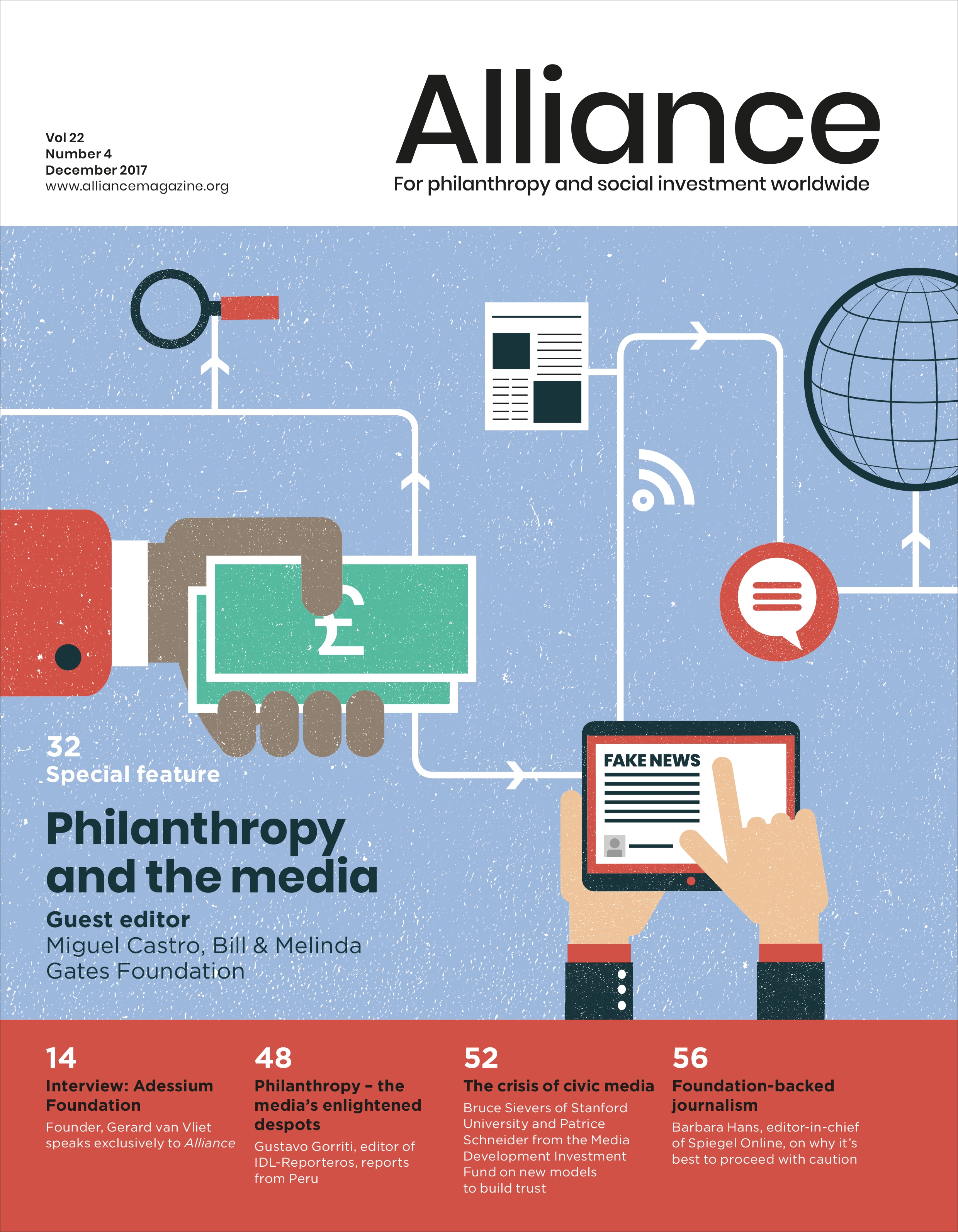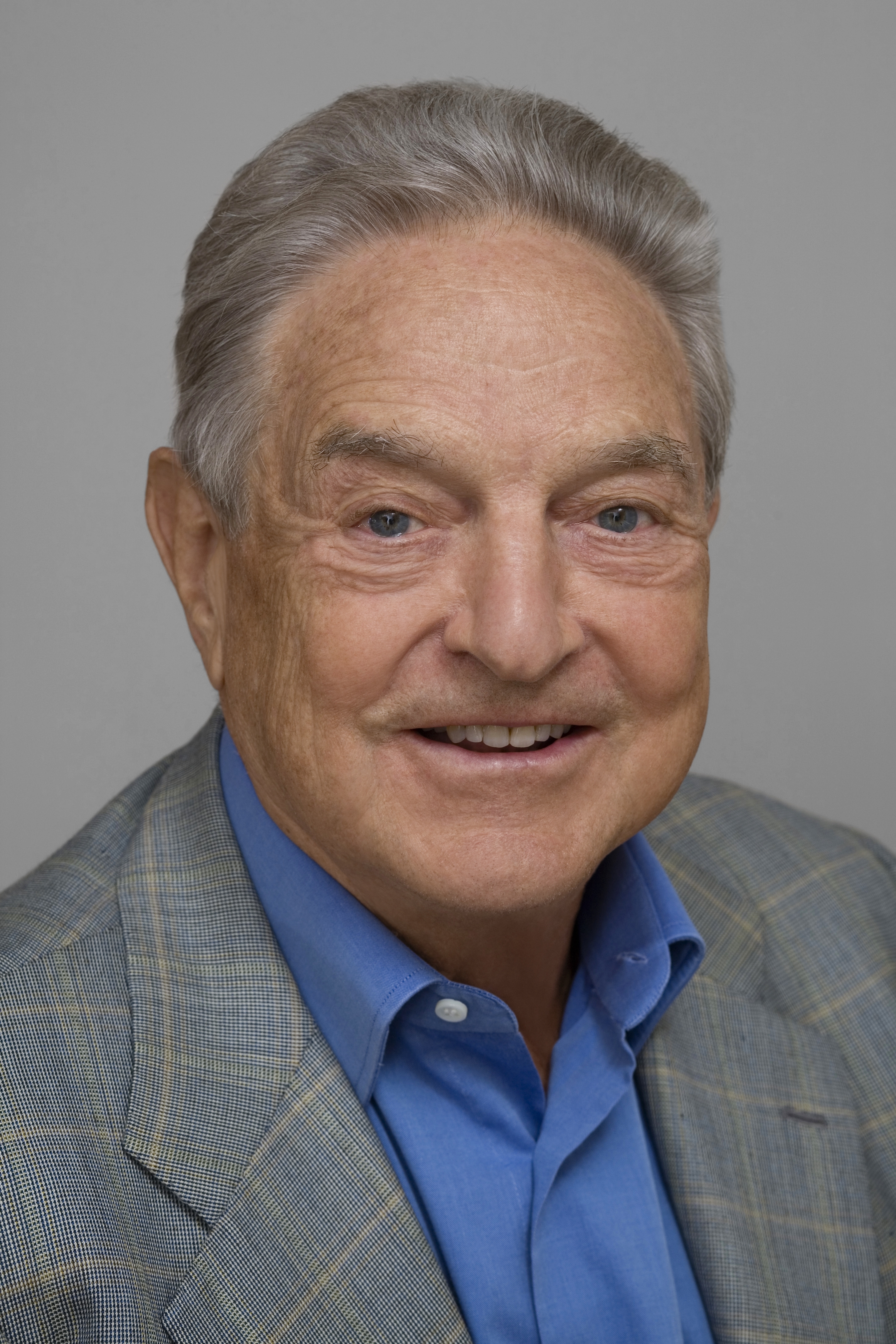A number of foundations run programmes on the media in different parts of the world backing investigative journalism, maintaining journalistic standards in the digital age, increasing credibility of news and maintaining open channels of information to local communities.
ZEIT Stiftung, Germany
Launched by Zeit newspaper founder, Gerd Bucerius in 1971, Germany’s ZEIT Stiftung funds various journalistic initiatives, notably in Eastern Europe. The Donhoff Fellowship, for example, is an exchange programme enabling journalists from Eastern Europe to spend two months with a German media outlet.
The project is co-financed by the Mercator Foundation and the German Foreign Office. In 2016, ZEIT Stiftung and Fritt Ord, a Norwegian Foundation, established the Free Media Awards – Supporting Independent Journalism in Eastern Europe. There are three annual awards worth €15,000 each available to journalists from Russia, Ukraine, Azerbaijan and Armenia. ZEIT also awards grants to refugee journalists and supports an annual media conference.
For more see zeit-stiftung.de/en
Adessium Foundation, The Netherlands
The Adessium Foundation’s public interest programme aims to foster open, democratic societies including through support of cross-border and collaborative investigative journalism in Europe.
There are three elements to the foundation’s media grantmaking. First, core and project support to journalistic organizations to tell stories of social importance and to promote innovation of journalistic content and distribution. Examples include the International Consortium of Investigative Journalists (ICIJ) and The Bureau of Investigative Journalism (UK), Correct!v (Germany), and Investico (based in the Netherlands). A second element is support for a strong journalistic infrastructure.
Examples include Journalismfund.EU and the Global Investigative Journalism Network, both of which, among other things, organize conferences where the European community of investigative journalists exchange ideas. Third, the foundation supports organizations that work to promote media freedom, rights to information and open data, such as Reporters without Borders and Access Info.
For more see adessium.org/public-interest
Open Society Foundations, US
Widely recognised as a pioneering force in independent media, Open Society Foundations’ programme on independent journalism supports ‘a free and safe environment for journalism to flourish, while seeking to strengthen investigative reporting, innovative and quality information collected under difficult conditions, and knowledge sharing in the field’ according to its website.
‘Difficult conditions’ include ‘autocracy, violence, repression, or poverty, or in moments of great opportunity, such as first democratic elections, peace agreements, or massive social mobilizations’. The emphasis of the programme is on those areas where journalism is one of the only sources of independent and reliable information, gained and disseminated on an ethical basis.
It is the most wide-ranging of the initiatives featured here, operating in virtually all the regions of the world, except East and South-East Asia. There are four portfolios under the programme, split between direct support for journalism initiatives, the protection and safety of journalism, and the sharing of knowledge and good practice in the field.
For more, see tinyurl.com/OSF-programmes
Humanity United, US
Launched in 2008, Humanity United (HU) is part of The Omidyar Group established by eBay founder, Pierre Omidyar. It has a strategic media programme that engages media partners, reporters and storytellers to raise awareness of important social issues. Its media engagement ranges from specific thematic areas like forced labour in palm oil production to more general reporting and investigative journalism into emerging conflicts and human trafficking.
Humanity United supports The Guardian’s ‘Modern-day slavery in focus’ platform, which looks at all aspects of this issue, from the role that markets play in sustaining modern-day slavery to the failure of states and justice systems to tackle the issue effectively. It also supported the making of the film, The Workers’ Cup, which details conditions in migrant labour camps in Qatar housing workers building the facilities for Qatar’s football World Cup in 2022.
Meantime, the Omidyar Network itself has recently announced $100 million of funding to support investigative journalism, fight misinformation and counteract hate speech around the world. One of its first grants, of $4.5 million, will go to the International Consortium of Investigative Journalists (ICIJ), the Washington-based group behind the Panama Papers investigation.
For more see tinyurl.com/OmidyarF
Knight Foundation, US
One of Knight Foundation’s four programme areas is journalism. Its main thrust is research, training and litigation, including in support of the right of expression and public access to information, and innovative approaches to the use of technology.
The foundation has recently launched a ‘Trust, media and democracy’ programme, which will provide $2.5 million in total to organizations improving trust in journalism and building stronger connections between journalists and their audiences.
Among these will be grants to the Duke University Reporters’ Lab to launch an innovation hub that will expand the network of organizations building fact-checking tools; to Associated Press to increase its ability to debunk misinformation by doubling its full-time staff dedicated to fact-checking; and to the Reynolds Journalism Institute for its Trusting News project, which conducts experiments and trains journalists on ways to increase trust. Knight has also endowed chairs and funded the creation of academic centres in journalism at a number of US universities.
For more see knightfoundation.org/programs
Independent and Public Spirited Media Foundation, India
Set up in 2015, the Independent and Public Spirited Media Foundation (IPSMF) is a consortium of Indian funders including philanthropists Azim Premji and Rohini Nilekani. The foundation provides assistance to public interest media organizations.
Grantees include LiveLaw, which publishes legal news, India Spend, which analyses government policy, The Wire, a news website published by the Foundation for Independent Journalism, and Better India, a site that publicizes stories of changemakers and innovations in various fields. According to Nilekani, the IPSMF is intended ‘to foster great reporting and coverage, especially in the digital space that allows for a deeper discourse in our democracy’.
While grant amounts are not specified on IPSMF’s website it has, for example, funded the Foundation for Independent Journalism to the tune of INR3.7 crore ($570,000). Its support for independent media is a new departure in a country where mainstream print media and television firms are backed by corporate houses. None of the backers have a direct say in how the foundation is run, which is in the hands of board of trustees, chaired by journalist, T N Ninan.
For more see ipsmf.org
Wellcome Trust, UK
Wellcome Trust publishes Mosaic, a magazine dedicated to exploring the science of life launched in March 2014. Its focus is long, narrative, non-fiction articles about human health, medicine and science. The site also features shorter articles, videos, audio and infographics. Mosaic content is available to use for free under a Creative Commons licence.
As a result, Mosaic stories have appeared in newspapers, magazines, books and on websites all around the world. Wellcome staff commission and edit the stories and original artwork, and manage the Mosaic website. The publication is editorially independent.
While it covers subjects that fit with Wellcome’s mission and vision, it isn’t limited to featuring research that Wellcome funds. Mosaic’s contributors bring their own unique perspectives to their stories, which means that the views expressed do not necessarily represent those of Wellcome.
For more see mosaicscience.com






Comments (0)